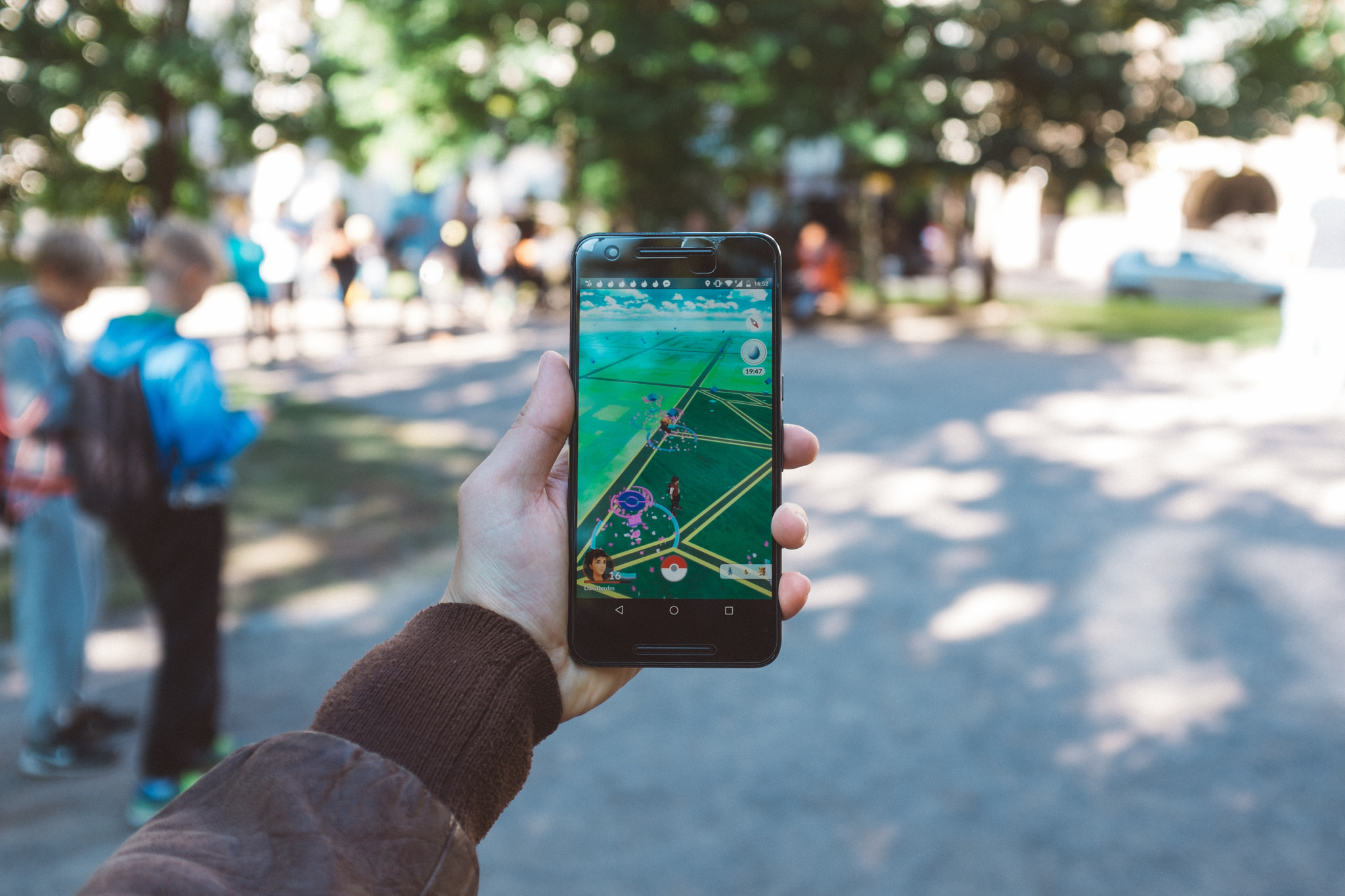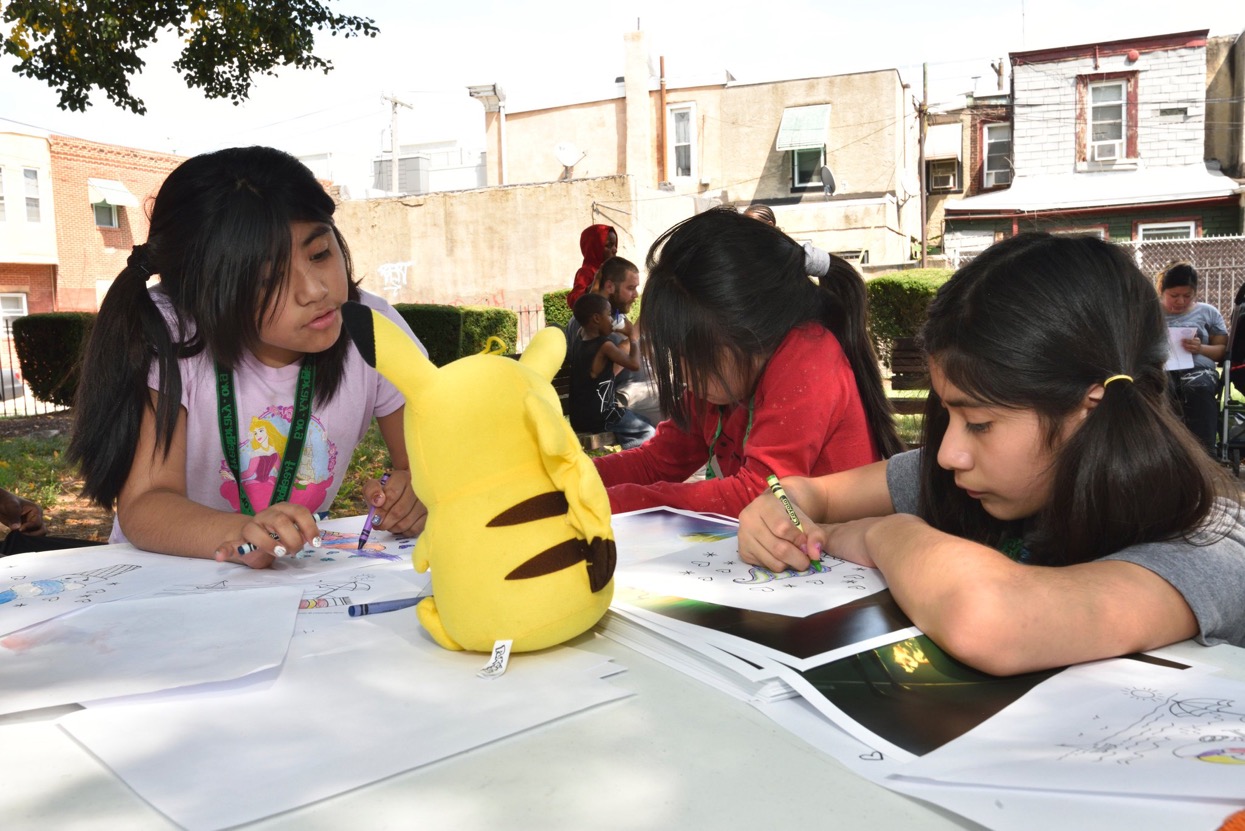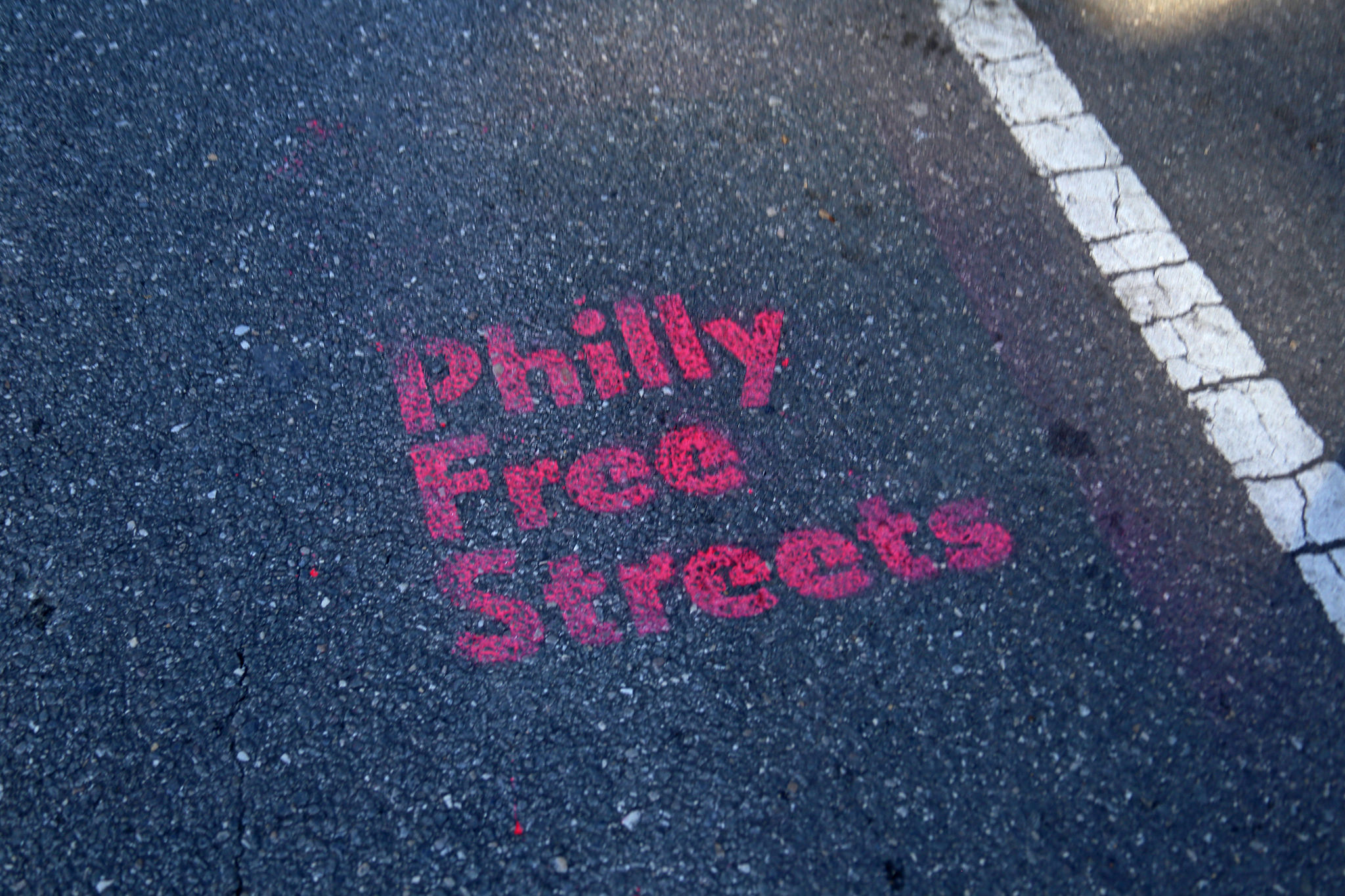To support the national Grade Level Reading Week 2018 to be hosted in Philadelphia.
Program Area: Community Impact
In summer 2016, Pokémon GO took the world by storm. Large crowds teemed in public spaces around the globe at all hours. The game, made by the Silicon Valley firm Niantic, Inc., uses a technology called augmented-reality (AR) to layer virtual objects (cute, cartoonish Pokémon creatures) onto the actual city map.
Knight Foundation invests in informed and engaged communities. Like our founders, Jack and Jim Knight, we aspire to be open to how technology can shape our work, and we’re exploring how best to harness the growth of digital technology to improve they ways communities respond, connect to and engage with residents.
We were impressed by Pokémon GO’s ability to bring residents into public spaces. We saw a prime opportunity to learn more about how our society, and its ubiquitous digital technology, might further spark public life in the communities where we work. This leans on an opportunity we see in our work: how to create cities of the future designed, driven by—and serving—the people who live in a place.
We partnered with Niantic to explore how Pokémon GO might enhance or augment existing efforts to support vibrant public life. The partnership launched in Charlotte, North Carolina, at an open-streets festival, in which busy streets were closed to cars and, instead, filled with pedestrians, bicyclists and—thanks to the Knight-Niantic partnership—people playing Pokémon GO. Our collaboration continued in three additional Knight communities: Akron, Ohio; Philadelphia; and San Jose, California.
Working with American University, we sought to track the impact of this partnership and discern lessons that others might apply to the role of technology in engaged communities. We were delighted to see that the report, “Cities Remix a Playful Platform: Experiments to Embed Pokémon GO,” found that AR games seem to be a promising tool for cities to strengthen civic engagement and build stronger communities.
For cities considering similar strategies, we learned four foundational lessons:
- Adapt games for local events. Cities should adapt AR platforms to amplify local strengths and better reflect civic needs. For example, cities can layer walking tours, scavenger hunts and other activities on top of the game, adding value for existing players and integrating play with local campaigns.
- Invite player networks (not just individuals). Pokémon GO players of all ages often arrived to events in groups and with existing social media networks poised for discussion. Recruiting is also easier through player and fan networks, and cities can help by tapping network leaders, beyond the usual open invitations.
- Focus digital activity near inviting and accessible physical spaces. Players often want to interact, but bringing people from different backgrounds and walks of life happens more easily when cities position play near inviting physical spaces with seating and food.
- Bring local culture to online platforms. Players can be connected to global cultures through AR platforms like the Pokémon universe. At the same time, games can engage players with local culture, from murals to local history. In a digital age, cities should increasingly invest in technology innovations that shape how we discover local culture.
The full report can be found here.
We hope city leaders use the lessons from these case studies to take advantage of the inevitable growth in technology to foster more engaged communities.
-
Community Impact / Article
-
Community Impact / Article
-
Community Impact / Article
-
Community Impact / Article
-
Community Impact / Article
To introduce a delegation of Miami entrepreneurs to key drivers of Israeli innovation, including decision-makers, entrepreneurs, and investors, as well as provide a comprehensive introduction to Israeli society, economy, and politics.
To support expansion of the 11 mile Ocmulgee Heritage Trail by constructing three new connections which will extend the Trail by approximately five miles (MAP 2.2c.1).
To develop a strategic plan and long-term land use plan for Veggielution, a community farm in East San José.
To support the activities the Campaign for Grade-Level Reading, the leading multicity literacy collaborative, and to support continued participation of Knight communities in the network.
To upgrade a data-rich repository of civic tech projects and practices into digital format, and report on trends, best practices and impact measures.
Support of the annual Reboot conference hosted by Lincoln Network, Inc.
In San José, Knight seeks to create one of the nation’s most engaged cities. We seek to place people at the center of the city’s present and future. From walkable and bikeable neighborhoods to more user-friendly design of city services to building vibrant public spaces for all, Knight’s work aims to help San Joseans fall in love with and work in support of their city every day.
To advance these efforts, Knight is launching Speak Up San José, a yearlong initiative that invites all residents for conversation and action to advance our city’s future. Specifically, the foundation is committing $150,000 to fifteen community groups to host 28 events over the coming twelve months. From community dinners to street parties to salons, each event is conceived by local organizations, community groups and neighborhood know-it-alls to advance locally relevant issues. Most importantly, every event is free, open to the public and/or engages a diverse group of individuals, and built around a specific action point.
In bringing together San José’s diverse residents, Knight seeks to create more opportunities for San Joseans to feel a sense of attachment to place. In Knight’s 2010 Soul of the Community Report, only 27.1 percent of San Joseans described feeling “attached” to San José. Working together with our partners, we aim to provide residents more opportunity to connect with each other, experience new neighborhoods and support a more informed and engaged populace.
And, as Knight recognizes both our and our partner’s limitations on hosting a truly citywide conversation, we are pleased to offer $6,000 for up to twelve additional events hosted by the community. Should you be an individual or organization interested in gathering San Joseans in support of a big idea, hopeful action or neighborhood gathering, please fill out this form.
We look forward to gathering with you across this wonderful city in support of San José’s vibrant, engaged and people-obsessed future.
Future Proof: Conversations on the future of mobility in San José
(June 28, July 26, August 23, September 27, 2018 happy hour talks)
On Your Left: Bike Boogie
(August 4, 2018 street festival)
Supporting our City: Exploring the role of cultural institutions in San Jose’s environmental sustainability
(August 15, 2018 dinner)
(September 5, November 7, 2018 and January 31, March 6, 2019 forums)
(September 21 interactive installations and conversations)
(September 23 block party)
(September 25, 2018 PechaKucha/hands-on design event)
(September 26 shared meal and conversation)
The School of Arts and Culture at MHP (SOAC) in partnership with Somos Mayfair
Cafécito – Coffee, Community, and Conversation
(September 27, October 25 and November 29, 2018 coffee gatherings)
Down the Eaten Path: Inclusivity and empowerment through street eats
(October 11, 2018 dinner)
Pecha Kucha Night: Mobility San José 2040
(October 18, 2018 PechaKucha event)
(October 30 discussion and party)
Protecting the Veins of San Jose: Keeping our creeks free of trash by 2040
(December 13, 2018 panel discussion & luncheon)
How Do You Feel in San Jose?
(January exhibit)
(January 18, 2019 PechaKucha happy hour)
The Silicon Valley Education Foundation and the San Jose Public Library
(January 31, 2019 roundtable discussion)
CatalyzeSV
(February 7, 2019 interactive presentation)
(February 17, 2019 Day of Remembrance discussion and art event)
A New Civic Imagination for San José: A dinner and conversation with Teddy Cruz and Fonna Forman
(February 27, 2019 dinner)
Perspective: Seeing and Understanding The Other Side
(March 6 and 20, April 3 and 17, 2019 talks)
KIVA
Community Gathering
(March 2019 street food style event and talk)
(April 8, 2019 street festival)
(April 13, May 11, June 29, 2019 dinners)
San Jose Museum of Quilts and Textiles
Can Art Change San José’s Local Water Consciousness?
(May 5, 2019 salon conversation)
The Gathering: People from various parts of the community and life stages, networking, informing and inspiring one another
(May 23, 2019 salon dinner)
Veggielution
Neighborhood Eats: Saturday suppers to discover and elevate the best food in East San José
(June 29, 2019 dinner)
Additionally, Knight will be offering monthly mini-grants of $500 to individuals and organizations for community conversation ideas. Apply here.
In San José, Knight seeks to place people at the center of the city’s future. From walkable and bikeable neighborhoods to more user-friendly design of city services to building vibrant public spaces for all, Knight aims to help San Joseans enjoy their city every day.
Knight’s Speak Up San José initiative invites all residents for conversation and action to advance our city’s future. Specifically, the foundation is committing $150,000 to community groups to host events over the course of the year. From community dinners to street parties, each event is conceived by local organizations, community groups and neighborhood know-it-alls to advance locally relevant issues. Most importantly, every event is free, open to the public and/or engages a diverse group of individuals, and built around a specific action point.
If you are an individual or organization interested in gathering community members in support of a big idea, action or neighborhood gathering, send us an email.
To learn more about this initiative and view past events, click here.
Upcoming events:
Image (top): Veggielution First Friday. Photo by Danny Harris on Twitter.
To support the DiverseForce On Boards Program to recognize and provide support for local leaders of color [FULL TEXT WITHIN NOTE, CHTR LIMITS]




